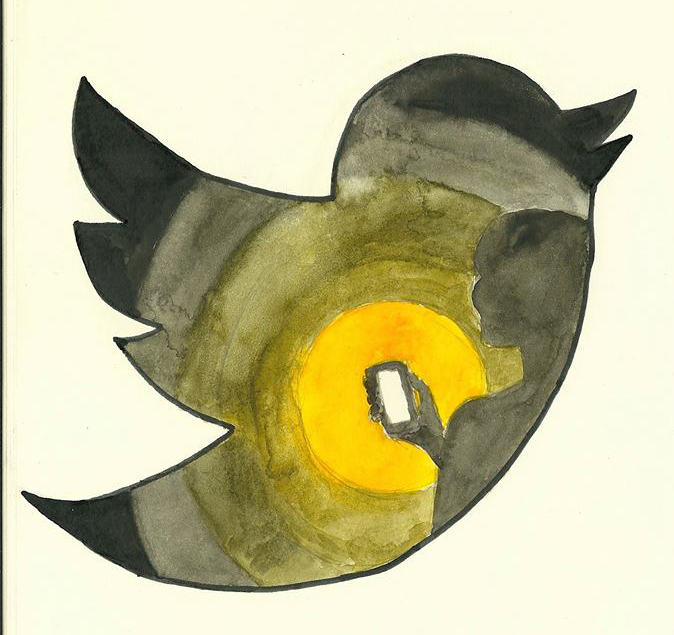The author of So Sad today definitely seems to think so- through her poetry, published initially online, she charters her experience of twitter and the web, as a place where sharing about struggles with mental health was more easily facilitated than every day.
In some ways it should be basic, when posting to Twitter or Instagram you are accessing the potential for an international group therapy session, you don’t have 1-10 people who could identify and relate to you, you have 1 – 313 million. The physical silence of online provides equal possibilities to share vulnerable-making, or at least vulnerable feeling information, which many mental health related things can be. However, silence can as easily be interpreted as a rejection as any explicit message, and if a trolling hate reply is received (of which there are many) it could silence the speaker for good.
Nevertheless, a series of comments can be a liberating thing. What arguably differs Twitter (where So Sad Today found her outlet) to Facebook, is the emphasis on a running conversation, the word rather than the image. Facebook and Instagram, with profiles created, photo’s filtered, tagged, comments posted occasionally and only when deemed worthy for the ‘like’ ratio, is a destination process. The Facebook stalk is a journey to an end goal- the idea of a person as a mix of what they have put out there and what we, me, your average stalker- wants to find. Your ex’s girlfriend, perfect with a touch of the insufferable. Online you can find a Pandora’s box of pictures, posts, likes or actions on someone’s timeline- yet you are left to make what you will of these without that person’s presence. There is no explanation, no backstory, and, by comparison to this, the extreme knowledge of one’s own thoughts and feelings can be isolating. Twitter is a running spree of thoughts, a daily or hourly update of everything from politics and daily life memes to Kanye and Kim, and alongside this comes thoughts and feelings. The instantaneous quality of Twitter, the notion that it is designed as an international stream of consciousness, (stating its aim as ‘(creating)the power for everyone to share ideas and information instantly without barriers’ ) provide a greater space for fluidity, for inconsistency- and if anything is present in emotional health it’s an element of inconsistency. Furthermore, if you are representing your struggles in some way on Twitter you are doing so as a speech bubble, there is no face attached, there is no list of vital statistics saying whether your single, where you live or what your career is. The feeling expressed is not attached to the person, so it remains just a feeling, and thereby can be more instantly available to others, and therefore easier to connect with. While the thought that your stinking never-left-bed days are at the whim of everyone’s else’s responses is daunting, they are at least coupled with a sense of discretion. The mixture of this and publicity opens up to others potential connection and compassion.
The facelessness (a name change on twitter can provide a total alter-ego, on Facebook you are more trackable) can also be seen facilitating rather than isolating. It can be easier to share to strangers, even if through a screen or online personality, than to share around those who are closest to you, whether they be boyfriend, girlfriend, or family. What with the taboo of mental health, when someone states that they be suffering to those around them, can often feel a responsibility, weighing down support the given. If real life is unsafe in any way, then forums such as Twitter, though the most uncertain in terms of range of responses- provide a certain freedom in their lack of investment. You can share where you’re at, and the buck ends there. What is said need not be remembered and mulled over by those around you, or effect your daily life in any way.
The fact that profiles for such things exists is comforting in itself. The black humour necessary to get through mental health struggles is a thriving part of Instagram and Twitter is similarly so, the gifs and meme’s and motivational quotes are, though sometimes cheesy, essentially very helpful, and hit a truthful nerve. They also, in the least intensive or committed way, offer a means of identification and relatability. Regardless of whether a person struggling posts a tweet or status, or merely read’s someone else’s and is heartened by the fact they are not alone in their struggles, the presence of this on social networking is important. If nothing else they provide at least some kind of crucial counterbalance to the ability these sites present to compare, belittle or over-glorify someone else’s external image.
Article by Nancy Hervey-Bathurst
Illustration by Imogen Whiteley

